Introduction
In the ever-shifting sands of global sourcing, gone are the days when sourcing agents could simply act as matchmakers between buyers and suppliers. The modern sourcing agent wears many hats—from strategist to relationship manager, and even data analyst. If you’re feeling the heat from inflation, vying for skilled labour, or scratching your head over market diversification, you’re not alone.
This article is your go-to guide, designed specifically for small sourcing agencies and large supply chain consultancies grappling with these multifaceted challenges. We’ll unpack the new-world problems you’re likely encountering and offer actionable insights into what your clients—those ever-demanding buyers—are really looking for.
So what’s on the agenda? We’ll delve into the hurdles of inflation, skilled labour scarcity, and the need for differentiation, just to name a few. Then, we’ll explore additional complexities agents face like vendor management and the increasing need for specialized services. Finally, we’ll wrap up with best practices to help you rise above the competition and deliver unparalleled value to your clients.
So go ahead, read on. Your guide to navigating the twists and turns of modern sourcing starts here.
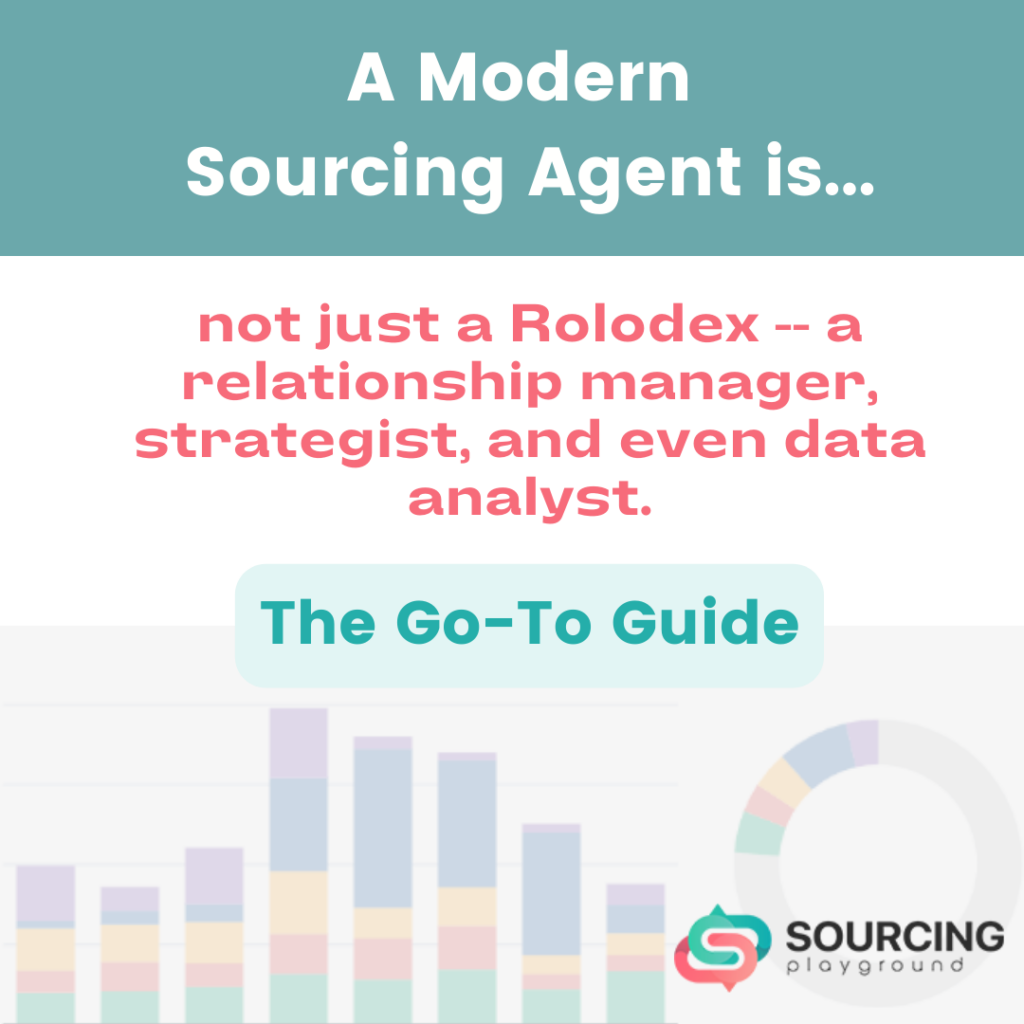
Section 1: Challenges Facing Sourcing Agencies
Inflation and Cost-Cutting Pressures
The rising inflation rates in the global economy have heightened the focus on cost-cutting measures. Clients are increasingly price-sensitive, requiring a nuanced approach that balances cost and quality, without compromising sustainability goals.
Skilled Labour Scarcity
The demand for skilled labour often outstrips supply, making it a challenging area for sourcing agencies. This competitive landscape not only affects production timelines but can lead to quality issues and increased attrition rates.
Differentiation in a Crowded Market
As the market becomes increasingly saturated with sourcing agencies, differentiation is crucial. Leveraging technology can provide a unique value proposition that sets your agency apart from competitors.
Market Diversification
Relying solely on one market or product category exposes agencies to considerable risk. Due diligence is essential when exploring new sectors, and existing client relationships may offer avenues for diversification. Especially now as many brands are considering nearshoring to accommodate delivery concerns overseas.
Changing Demand & Speed to Market
Rapid shifts in consumer trends necessitate quick response times from sourcing agencies. Nearshoring has emerged as a viable strategy, facilitating faster turnaround times without sacrificing quality.
The Rise of All-Inclusive Services
Clients are increasingly looking for agencies that offer comprehensive services. To meet this demand without overextending resources, agencies might consider forming partnerships with other service providers and create a wider depth of offering.
Catering to Smaller Batch Production Needs
Smaller, more frequent production runs are becoming the norm, posing logistical and managerial challenges for agencies. An agile operation is crucial to navigate these changes successfully.
Section 2: Additional Pains for Agents

Vendor Management
In the intricate realm of global sourcing, the role of sourcing agents is evolving rapidly. Their responsibilities extend well beyond just connecting buyers with suppliers. Today’s sourcing agents are at the forefront of actively fostering and managing intricate supplier/buyer relationships, prioritizing compliance and ensuring impeccable quality. Such commitment necessitates ongoing communication, routine site inspections, and a rigorous vetting process. Yet, it’s essential to acknowledge that effective vendor management is highly resource-intensive and demands consistent and proactive engagement on the ground.
The nuances of global sourcing continually emphasize the importance of solid vendor relationships. The task isn’t merely about identifying the right supplier but nurturing these connections to safeguard compliance and uphold quality standards. Engaging in regular communication, conducting site inspections, and executing a comprehensive vetting system are vital components of this process. While tools like vendor management software can significantly simplify these tasks, presenting a clear overview of performance metrics and compliance documentation, it’s undeniable that such management requires a significant investment of resources and a persistent presence on the ground.
Specialization vs Generalization
Specialization is not just a buzzword; it’s becoming a necessity in the sourcing arena. While generalists can offer a broad range of services, specializing allows agencies to become experts in particular sectors or types of sourcing. This depth of knowledge can serve as a significant competitive edge. However, it’s crucial to select your specialty carefully, considering market demand and your team’s strengths. But how can sourcing agencies act as specialists while broadening their scope to attract new clients? Generalization isn’t entirely off the table, but it’s pivotal to strike a balance. As clients are increasingly seeking expert guidance, agencies can couple their niche expertise with a wider understanding, ensuring they cater to both specialized and more diverse client needs.
The Democratization of Vendor Data
The surge in online vendor databases and management portals has granted clients unprecedented access to supplier information. This shift necessitates a re-evaluation of a sourcing agency’s value proposition. Now, it’s not just about the data you can provide, but also the services layered on top of that. Sourcing agencies can bring a wealth of expertise to the table, including skills in price negotiation, filling communication gaps, and rigorous quality control processes. In-person inspections and a deep understanding of logistics and multi-factory coordination offer invaluable add-ons that database portals simply can’t provide.
Section 3: What Buyers are Looking For

Capability
In the sourcing realm, capability isn’t limited to a thick rolodex of suppliers. Indeed, that’s a fundamental aspect, but contemporary buyers delve deeper. They’re in pursuit of agencies that present a comprehensive package—encompassing robust vendor networks, stringent quality assurance measures, and an acute awareness of compliance issues. Moreover, brands today inherently expect sourcing agencies to have boots on the ground, actively problem-solving during both the product development phase and production. This is seen as a given—an irreplaceable value that sourcing agencies bring to the table. Demonstrating these multifaceted capabilities not only attracts clients but solidifies your reputation as a top-tier, reliable agency.
- Specialized resources
But let’s take it a step further. Many customers seek out agencies because they offer specialized resources that companies either don’t have or can’t afford to invest in themselves. In today’s fast-paced fashion industry, where speed, design trends, and technological innovation are key differentiators, the ability to offer such resources can set your agency apart from the pack.
- New technology
Sure, many brands have their in-house design teams, but what about introducing them to the latest advancements in fabric technology? Or offering them a quick-turnaround trend analysis that lets them be first to market with the next big thing? This is where your agency can genuinely shine. - Expertise
The more you can offer expertise in areas that complement your clients’ needs, the more invaluable you become. Trend analysis, up-to-date knowledge on emerging technologies, or even quick-to-implement design tweaks can give your agency an authoritative edge. Clients won’t just see you as a service provider; they’ll regard you as an industry leader, a valuable partner, whose expertise they can’t afford to go without.
Agility
Let’s face it, the business world moves at the speed of light. In this high-velocity environment, agility is more than just a buzzword—it’s your agency’s best friend. Whether it’s adapting to abrupt market changes or swiftly responding to client demands, an agile approach is golden. Nimble decision-making and proactive risk management are the name of the game here. In a landscape where even minor delays can cost dearly, your ability to pivot quickly can make you an invaluable asset to any buyer.
But agility is not just about quick reaction times. Let’s delve into what else sets an agile agency apart:
1. Strategic Sourcing & Market Insights
Your network is crucial, sure, but what really makes you stand out is your ability to provide the latest intel on strategic sourcing trends. Imagine a new client walks in, and you can tell them precisely where their competitors are sourcing from. Instant authority, right? Offering data-backed insights, like the increasing trend among EU brands for dual-lane sourcing (Asia for cost advantages and nearshore for speed), can set you head and shoulders above the competition.
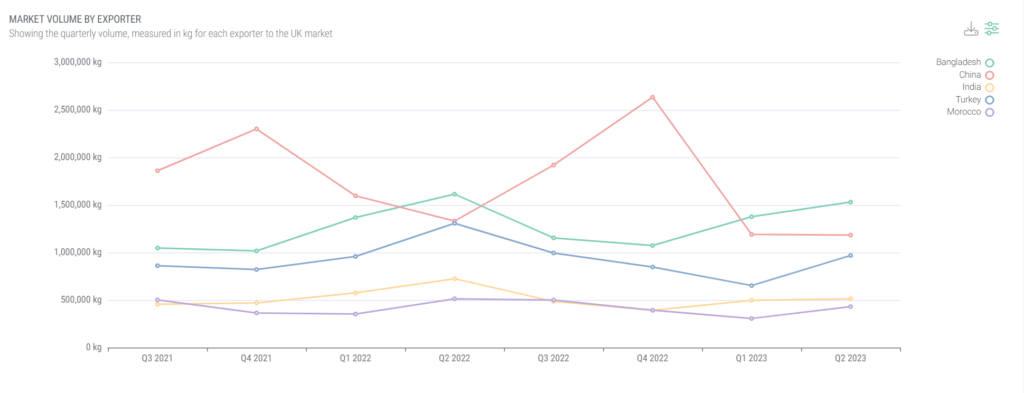
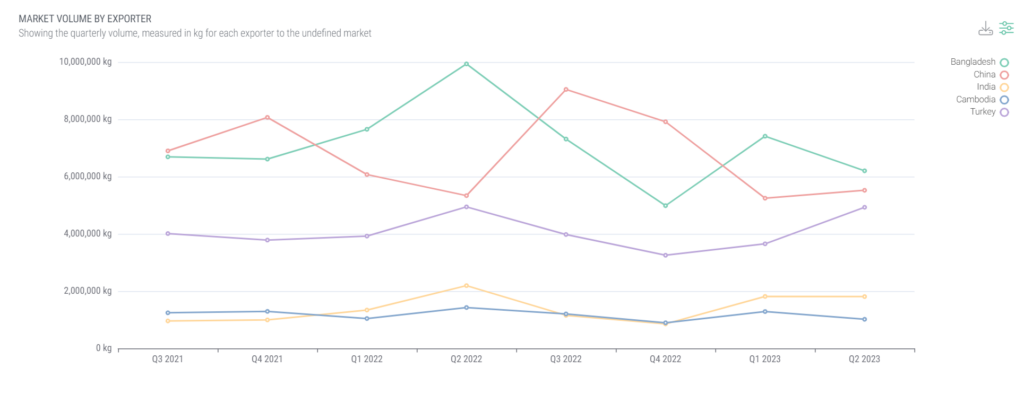
2. Factory Intelligence
You’re not just a network of factories; you’re a treasure trove of vetted, proven resources. Brands seek your services because you can shortcut the lengthy process of factory evaluation.
Are you leveraging technology to constantly discover and evaluate new suppliers, particularly those that are pushing the boundaries in tech, design, and quality?
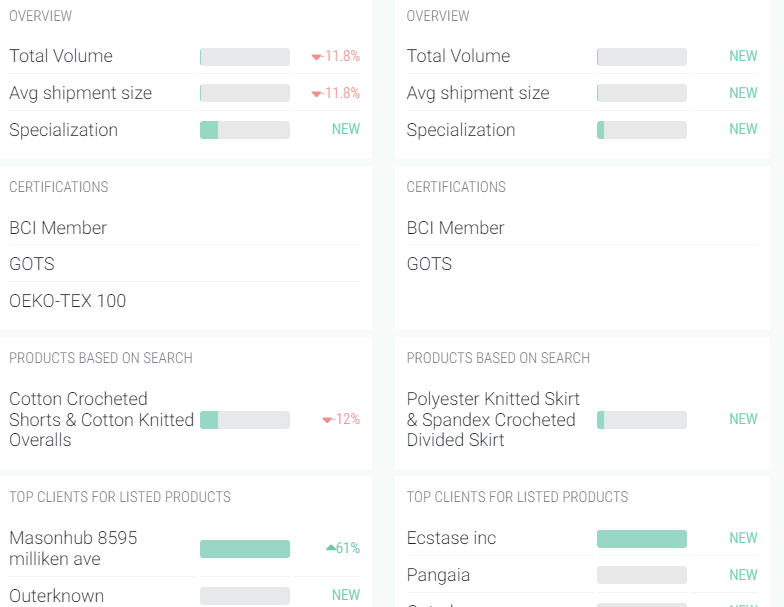
Showing side by side comparison of 2 certified suppliers with information on certifications, products, volume and clients.
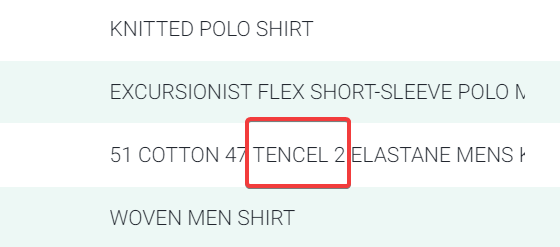
A broad, data-driven approach can provide you with the information you need to advise clients on the best sourcing strategies tailored to their specific needs.
Let’s say your customer is Outerknown – known for their sustainable quality products.
Then knowing where competitors like Patagonia, North Face source from will help to deliver data backed insights for your consulting services:

So, the next time a client approaches you, it won’t just be about your ability to deliver quickly; it will also be about the intelligence and insights you bring to the table, elevating you from a service provider to a trusted consultant. Reducing risk with new vendors and giving you a new competitive advantage.
Visibility
Today’s emphasis on transparency and accountability in supply chains isn’t just a regulatory mandate; it’s a transformative shift in the industry dynamics. While past practices may have allowed for a certain degree of discretion, changing legislation ensures a pivot towards thorough disclosure.
Acknowledging the crucial role sourcing agents play, it’s evident that their inherent value lies not just in their vast networks but in their adept ability to facilitate smooth production, curate quality products, and masterfully bridge communication between brands and factories. Their hands-on approach to product development and proactive collaboration with factories minimizes production hitches, underlining their indispensable role in the supply chain.
Key legislative introductions, such as the United States’ Uyghur Forced Labour Prevention Act (UFLPA), U.K.’s Modern Slavery Act, Australia’s Modern Slavery Act, and the German Supply Chain Act (LkSG), mandate brands to disclose extensive data about their supply chains. This environment isn’t a challenge but an opportunity for sourcing agents. By actively collecting and providing certifications, disclosures, and detailed factory information, agents can alleviate some of the compliance burdens from brands.
Modern sourcing agents recognize this shift as a chance to fortify their relationship with brands, offering pivotal support during these regulatory transitions. By stepping up as proactive information gatherers and advocates for transparency, they not only comply with the evolving landscape but also enhance their value proposition, transitioning to integral, trusted partners in the sourcing journey. Embracing this role reinforces trust, assuring brands that partnering with informed and proactive sourcing agencies ensures compliance, quality, and mutual growth.

Section 4: Best Practices for Sourcing Agencies
In this rollercoaster of a market—characterized by everything from volatile costs to ever-demanding buyers—it’s easy to get lost in the chaos. But, fear not. Adapting and evolving are part of the game, and we’ve got some concrete tips to help you navigate these turbulent waters. So, let’s cut to the chase and delve into some best practices that could very well be your lifeboat in this sea of challenges.
In today’s cutthroat market, a generic value proposition won’t cut it. Buyers are hunting for agencies that offer something more—agencies that align with their growing demands for Capability, Agility, and Visibility. Here are some concrete value adds that could elevate your agency’s standing:
Capability:
Agencies must constantly evolve, iterate and innovate to stay competitive. Let’s dive into the specifics:
- Swift Identification of Compliant Factories:
In the ever-changing landscape of global sourcing, the capability to rapidly identify compliant and certified factories across various countries is invaluable, even outside an agency’s immediate network. Brands deeply appreciate agencies that can streamline the search for factories that meet specific certification standards. This not just underscores an agency’s efficiency but also highlights their commitment to ensuring compliance and quality, differentiating them from the competition. - Access to Top Trend Analysis
In today’s fast-paced fashion industry, trends come and go in the blink of an eye. Offering top-tier trend analysis can provide your clients with the information they need to launch products that resonate with their market. This type of service adds a layer of indispensability to your agency’s offering. - Complementary Expertise
Your role shouldn’t be limited to just sourcing; you can act as a true partner by investing in resources and expert advice that complement your clients’ in-house teams. Whether it’s in design or technology, your capability to offer more comprehensive services will ensure that you’re viewed not just as an external agency, but as an integral partner in your clients’ journey.
By embracing these best practices, you go from being a ‘service provider’ to an ‘essential partner,’ fully equipped to navigate the complexities of modern sourcing with ease and expertise.
Agility
In the world of sourcing, flexibility isn’t just an asset; it’s a necessity. An agile approach is essential for keeping up with the ever-changing landscape. Let’s examine what agility should entail:
- AI-Driven Tools for Proactive Solutions
Leveraging AI tools not only equips you to anticipate market changes but also enables you to proactively offer solutions to your clients. Whether it’s identifying new sourcing opportunities or flagging potential risks, AI can be your edge in staying ahead of the curve.
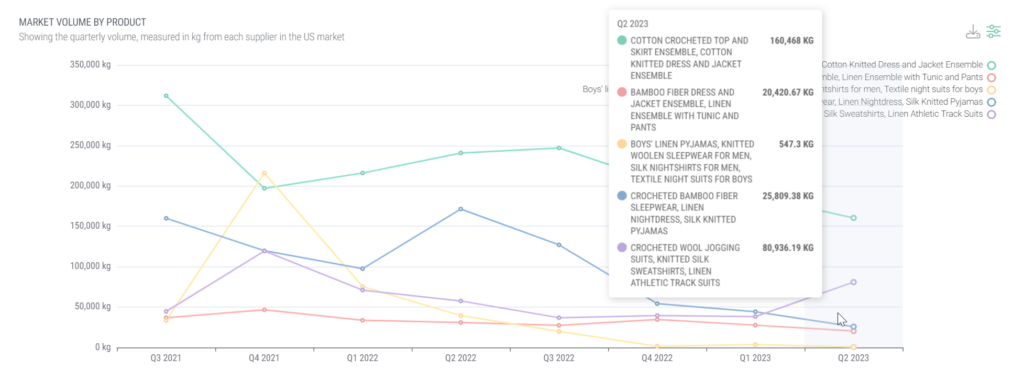
- Emergency Response Team
An agile organization always has a plan B. Establishing an emergency response team that can mitigate risks and react swiftly to unforeseen changes can be your lifeline in a volatile market. - Speed and Proactivity
In today’s fast-paced market, you can’t afford to react; you must proact. Investing in technology and data-driven insights allows you to make quicker, more informed decisions, offering new supply chain solutions that bring quality products to market faster and more sustainably.
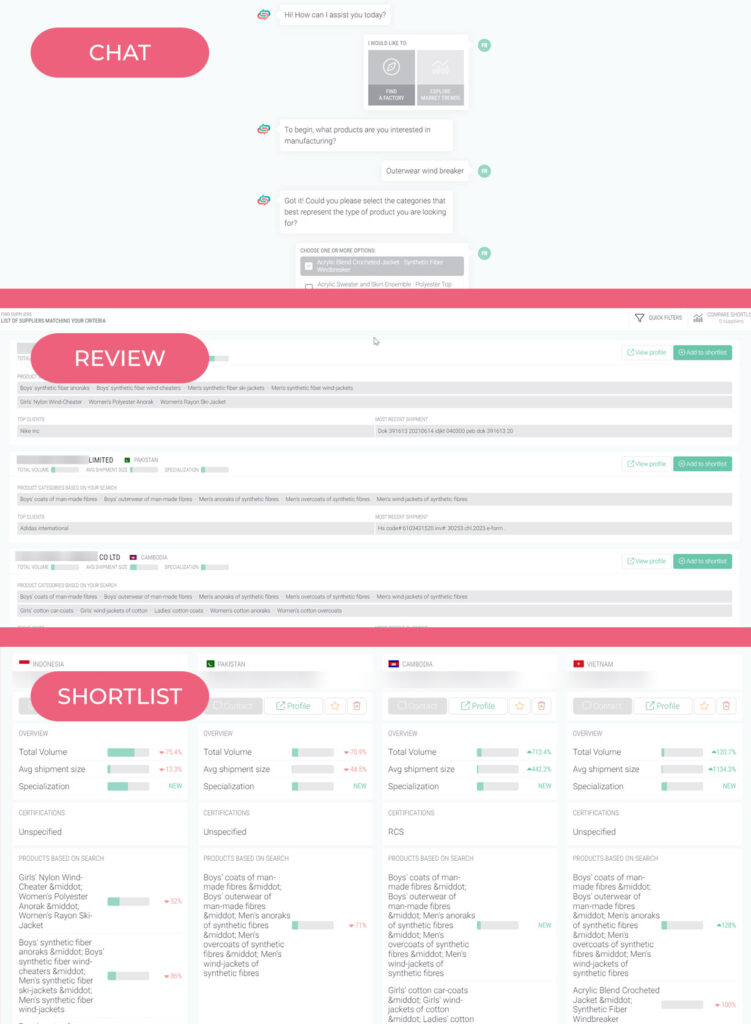
- Mitigating Geographic Risks
For example, many brands in both the EU and US are re-evaluating and de-risking supply chain operations not to be over reliant on one market. If your agency has been heavily focused on a specific country of supply, this could be a risk. Broadening your market intelligence to include other countries will enable you to pivot as needed, keeping your services relevant and invaluable to your clients. Technology and intelligence platforms can aid in this diversification, allowing you to scale your adaptability without having to deploy additional resources on the ground.
By embedding agility into your operations, you position your agency as a forward-thinking, indispensable partner, capable of navigating the complexities and uncertainties that define modern sourcing.
Visibility
Visibility is more than a buzzword—it’s a necessity. In a world that demands more transparency and accountability, you can set yourself apart by giving clients unparalleled control and insight into their supply chain. Here’s how:
- Factory Evaluation and Proposal:
Creating robust proposals for new clients requires more than just a cursory overview of potential factories. Utilize credible, verified data to showcase why particular vendors are suitable. Data on compliance, audits, certifications, shipment history, products, and customer relationships should all be current. The source of this information? An in-depth, constantly updated database that aligns with the needs and objectives of your clients. This rich data set can then be supplemented with your industry experience and know-how to craft compelling proposals.
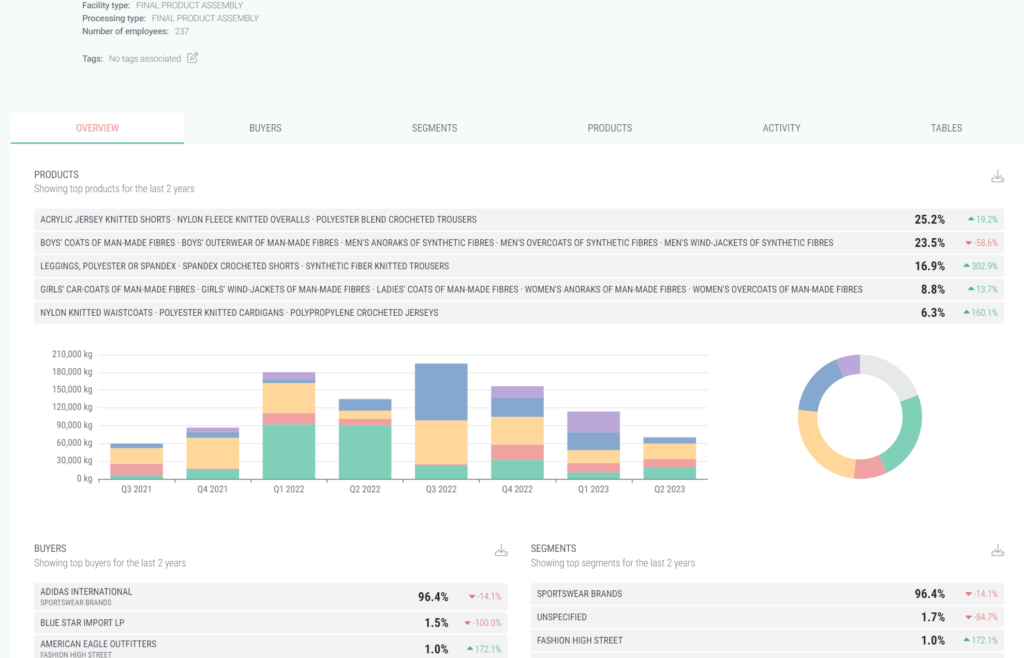
- Insights on Production:
Trust is hard to earn but easy to lose. Assuage client concerns with regular production checkpoints, complete with photo evidence and updates. This hands-on approach proves you’re not just a middleman but an active participant in ensuring quality and minimizing risks.
- Collecting Data for Certification:
Compliance and sustainability are no longer optional—they’re essential. Your clients are increasingly required to disclose extensive details about their supply chains. Can you facilitate this? Invest in digital platforms that centralize all pertinent vendor information, enabling your clients to access what they need when they need it.

By crafting a value proposition around these pillars of visibility, you’re doing more than just ticking boxes; you’re creating an indispensable partnership. Remember, the more closely your services align with your clients’ specific needs, the more essential you become in their eyes.
Conclusion
The world of sourcing has never been more complex—or exciting. From grappling with fluctuating inflation rates to navigating the tightrope of skilled labour availability, sourcing agencies face unprecedented challenges. But let’s flip the script: these challenges can be your catalysts for change.
Adaptation is no longer a buzzword; it’s a necessity. Whether it’s fine-tuning your services to offer real-time tracking or embracing AI-driven market analytics, agility is your new best friend. And let’s not forget diversification; there’s a whole world of markets out there waiting for your unique skill set.
In conclusion, let’s view these challenges as the opportunities they are. Adapt, diversify, and align your value proposition with what modern buyers are actually seeking, and you won’t just survive—you’ll thrive.
What’s Next?
Add to your capabilities, agility and visibility giving you the edge. See how Sourcing Playground is giving sourcing agents like you the ability to diversify and provide more value overnight.






